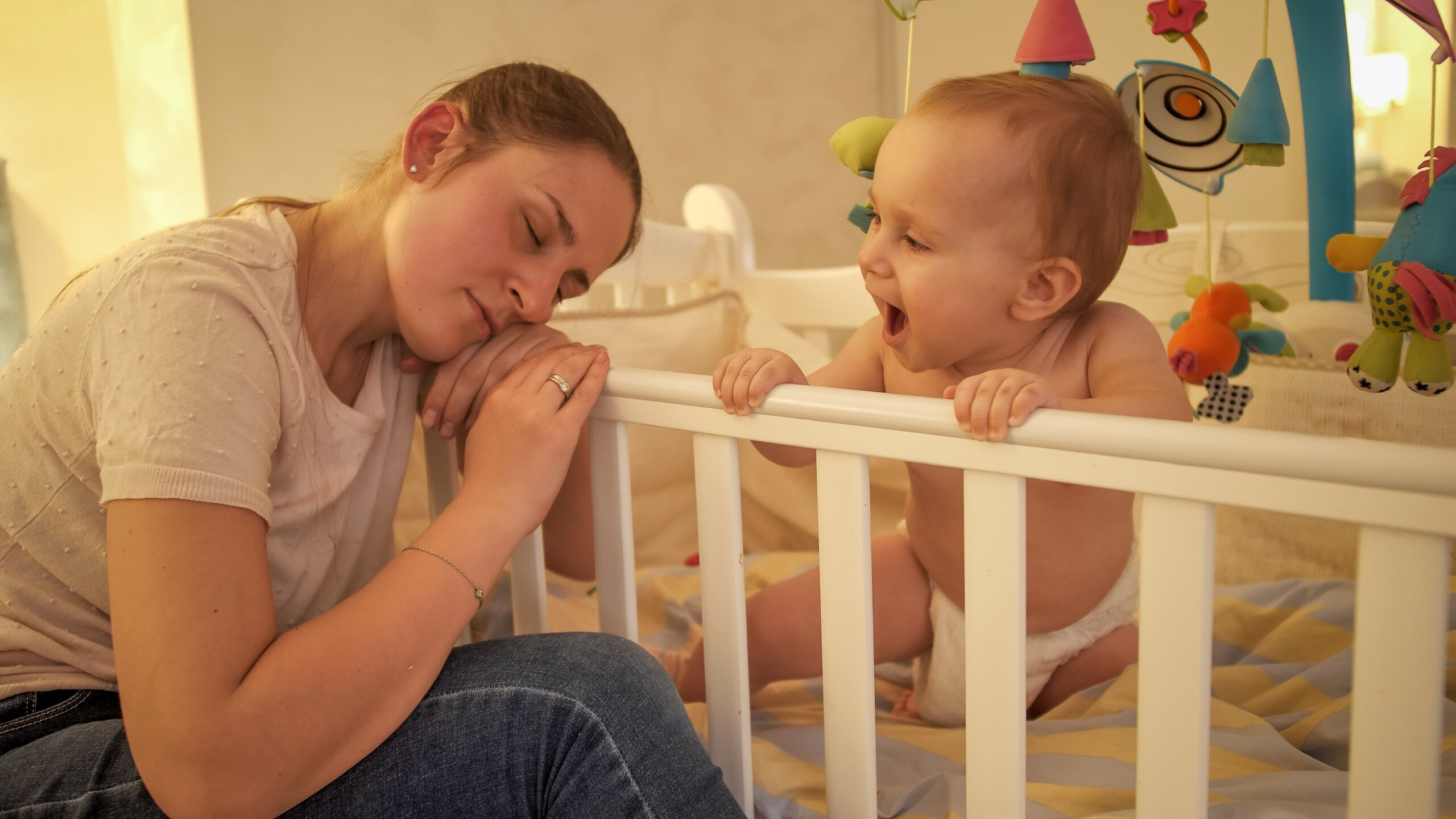When your baby arrives into the world, we think of how cute and tiny they are. With their adorable faces and innocent smiles. It is hard to not marvel at the miracle of life. But many parents are not prepared for the lack of sleep and the struggle they may face. The earlier you introduce healthy sleep habits the easier it will be.
Unfortunately, there is no set schedule at first, and many newborns have their days and nights confused. They think they are supposed to be awake at night and sleep during the day.
For the first few weeks your baby’s sleep has no regular rhythm or concentration of sleeping and waking. Newborns generally sleep about 16 to 18 hours per day, however, it is sporadic with the longest continuous sleep episode lasting only 2.5 to 4 hours.
Newborns have three types of sleep cycles – active sleep, indeterminate sleep and quite sleep.
Active sleep – rapid eye movement (REM), this is a longer period of sleep. This is when the baby is attentive to sounds and sights, and moves actively.
Indeterminate (transitional) sleep- a short period of sleep before quite sleep. This period of sleep is not clearly defined into active or quite sleep but is a transitional period.
Quite sleep- non-rapid eye movement(non-REM). This is a time when the baby is very still, but awake and taking in the environment. During the quiet time, babies may look or stare at objects, and respond to sounds and motion.
This distinctive sleep style occurs mostly because circadian rhythms have not yet been fully developed. Overall, their sleep is light and restless. They move around a lot and can vocalise and can be wide-eyed. This can confuse many parents into thinking they are awake, but they are actually experiencing normal REM sleep. Studies show that some newborns can spend 75% of their time in light sleep.
If left alone during this time some babies will go back to sleep.
Circadian Rhythms
Circadian rhythms begin to arise around 2 to 3 months of age, leading to sleep consolidation that manifests in greater durations of wakefulness during the day and longer periods of sleep at night.
Circadian rhythm development means from around 6 weeks your baby progresses to having the ability to sleep better overnight. At around 8 weeks the cycling of melatonin and cortisol hormones in a circadian rhythm and sleep cycles also change because they are more responsiveness to social cues. They are more engaging, they are smiling and interacting with you.
Why is your newborns not sleeping well?
Your baby may be going through a growth spurt or their sleep disturbances may simply due to changes in development and need to eat more often for a few days. If this continues beyond a few days it may due to overstimulation. It is easy to overstimulate a newborn and they become very tired very quickly.
Watch their awake window, this is should be no more than 1 hour. This include feeding and changing their nappy.
Signs you baby is ready for sleep
Your baby may show signs of being ready for sleep when you see the following signs:
Frowning
Yawning
Fussiness
Arching back
Pulling their legs up
Squirming
Eyes wide opened and staring
Clenched fists
Jerky movements
Sleep Environment
Darkness
I recommend to make their room as dark as possible. The reason I suggest this is because at around 6 weeks of age they already know day and night and between 8-12 weeks of age babies start to produce their own melatonin, the sleep hormone, and this is far more readily produced in darkness.
White Noise
I recommend white noise for all their naps. It needs to play continuously for the duration of their naps and overnight sleep if they are unsettled. This is effective all the way up until about 12 months old and can be particularly helpful for newborns as it simulates the sound they hear in the womb. It needs to be very loud to be effective.
Swaddling
I recommend swaddling until between 4-6months of age, as the Moro (startle) reflex is often still very strong up until around 3 months old and can cause disruption from sleep. I recommend an arms down swaddle or a large wrap.
Settling my baby
In the early weeks try settling baby in your arms:
Hold your baby in your arms until they fall asleep.
Use gentle rhythmic patting, rocking, stroking, talking, or softly singing before putting your baby into the cot asleep.
If your baby wakes after a sleep cycle you may need to re-settle.
Why do we do assisted naps
An assisted nap is when you hold your baby in a front pack, or let them sleep on you.
For newborns the aim of the assisted naps is to get your baby used to sleeping for longer stretches, which will help them to sleep through the night as soon as they are physically able to.
When are assisted naps appropriate?
Assisted naps are great for newborns from birth up to around 3 months. After 3 months I encourage you to allow your baby to become familiar with their room and sleep environment so this is their sanctuary where they recognise this is their environment where they sleep. As they become more familiar with their bassinette as an association of where they sleep, overtime they will begin to settle easier.
The early months will fly by, so enjoy your beautiful baby. Establish a feeding and nap routine and stay consistent. Not every day will be perfect but your baby is!









